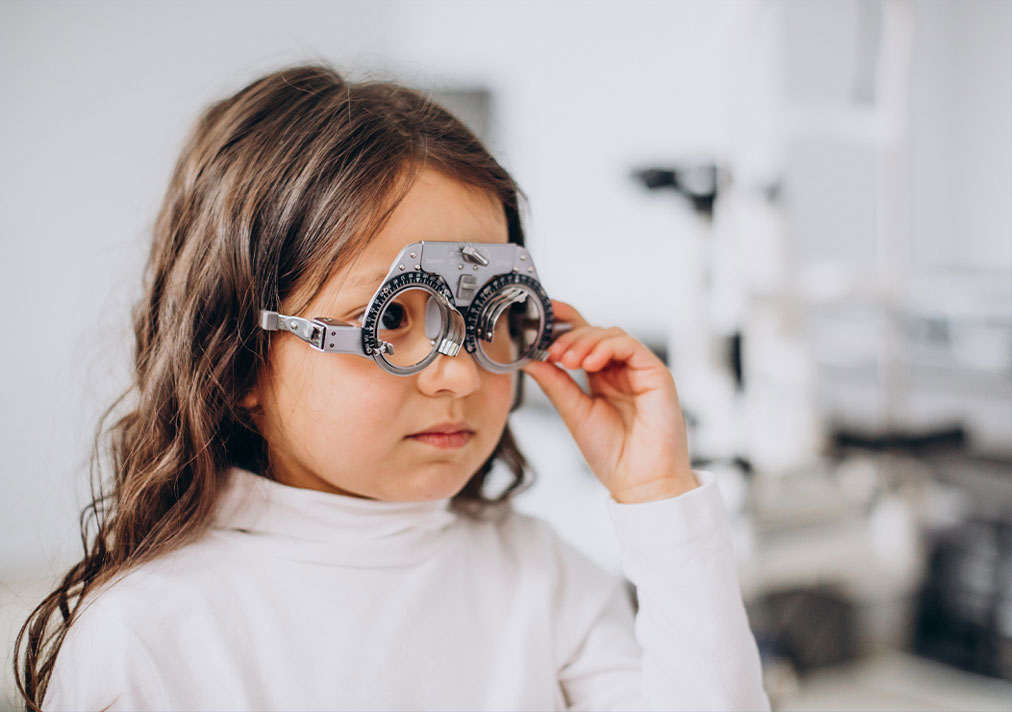As parents, we are dedicated to providing the best for our children, from nutritious meals to a loving home. Yet, amidst the whirlwind of parenting, one crucial aspect sometimes takes a back seat – our children’s eye health. In this guide, we’ll delve into the importance of early eye care, emphasizing regular check-ups, recognizing potential issues, and managing screen time for optimal vision and overall well-being.
Early Eye Care Matters:
The early years are a critical time for visual development. Routine eye check-ups for children can detect issues early on, ensuring timely intervention. Schedule your child’s first eye exam around the age of 6 months, with follow-ups as recommended by the eye care professional.
Signs of Potential Issues:
Be vigilant about signs that may indicate potential vision problems in your child. Watch for squinting, eye rubbing, excessive tearing, sensitivity to light, or frequent headaches. These subtle signs could be early indicators of vision concerns that need attention.
The 20/20/20 Rule for Screen Time:
In an era dominated by screens, implementing the 20/20/20 rule becomes paramount. Encourage your child to take a break every 20 minutes, focusing on something 20 feet away for at least 20 seconds. This simple habit helps alleviate eye strain associated with prolonged screen use.
Nutrition for Healthy Vision:
A balanced diet rich in nutrients plays a pivotal role in maintaining good eye health. Ensure your child’s diet includes foods high in vitamins A, C, and E, as well as omega-3 fatty acids. These nutrients support proper eye development and reduce the risk of vision-related issues.
The Importance of Outdoor Play:
Outdoor activities contribute to overall eye health. Sunlight helps regulate the sleep-wake cycle, known as the circadian rhythm, which influences vision development. Encourage your child to engage in outdoor play, fostering not only physical well-being but also healthy eyes.
Balancing Digital Engagement:
Strike a balance between technology and playtime. Limit screen time and encourage activities that promote eye-hand coordination. When your child does use screens, ensure proper lighting, maintain an appropriate viewing distance, and consider blue light filters to protect against digital eye strain.
Regular Eye Exams: A Lifelong Habit:
Cultivate the habit of regular eye check-ups early on. Eye conditions can change rapidly during childhood, and routine exams help monitor these changes. Additionally, early detection and correction of vision problems contribute to your child’s academic success and overall quality of life.




